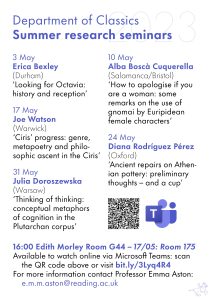Written by Samuel Agbamu
Rome is a city steeped in the history of empire. Few tourists will fail to visit any number of the imposing remains of the Rome of the Caesars, be it the Colosseum, Pantheon, or the Forum. Yet the imperial history of Rome did not end with the putative fall of the Western Roman Empire, whenever we might date that, nor with Charles V’s sack of Rome in 1527, nor even with the incorporation of Rome into the Kingdom of Italy in 1870. Of the major European imperial powers of the nineteenth and twentieth centuries, Italy stands out as perhaps the least discussed, either inside or outside Italy, and one of the least understood. Because of its easy association with the Fascist regime, which held power from 1922 to 1943, and the invasion of Ethiopia launched by Mussolini in 1935, the legacy of modern Italian imperialism is frequently subsumed into the question of Fascism. Yet Italy pursued an imperial agenda almost at the same time as being unified as a nation in the 1860s, and the legacies of its colonial endeavours persisted long after the death of Mussolini, and continue to be felt in many ways today. Furthermore, Fascism is well known for adopting, adapting, and inventing ideas drawn from ancient Rome, from the so-called ‘Roman salute’ to the symbol of the Fasces itself. Yet modern Italian imperialism, prior to Mussolini’s March on Rome in 1922, had a long history of posing itself as ancient Rome’s successor, returning to regions that had once been part of the Roman empire.
It was with such considerations in mind that Elena Giusti (University of Warwick) and I organised a three-day conference in Rome in June 2023. When we began to put the event together, we did not know that we would be having these discussions in a country run by Georgia Meloni’s Fratelli d’Italia (Brothers of Italy) party. Fratelli d’Italia are the heir to Mussolini’s Fascist party, and were swept into power partly on the basis of virulent anti-migration policies. Many of the migrants who are targeted by Meloni’s xenophobic rhetoric and policies depart for Italy from the coast of North Africa, especially Libya, a former colony of Italy. Similarly, many of the migrants originate from Italy’s former east African colonies. Italy’s right-wing, anti-immigration governments have been especially vociferous in their hostility towards those crossing the Mediterranean from North Africa to Europe’s southern shores, despite the fact that Italian imperial ideology once promoted the notion that the North African coastline was Italy’s ‘Fourth Shore’, and that Libya was, in fact, a part of Italy. Such ongoing ramifications of Italy’s past imperial claims, many of which were based on selective readings of North African ancient history, made the urgency of this conference acutely felt.

Rome’s EUR district was built for the Esposizione Universale Roma 1942, which never took place due to the outbreak of the Second World War. At the end of the road is the Palazzo della Civiltà Italiana or the so-called ‘Square Colosseum’. Photo by author.
The conference was hosted at the Museo delle Civiltà in Rome, in collaboration with Rosa Anna di Lella and Gaia Delpino, cultural anthropologists working at the museum. Set within the imposing EUR district of Rome, the ultimate architectonic expression of Fascism’s self-representation, the museum holds the collections of the former Museo Coloniale, inaugurated by Mussolini in 1923. Recently, the museum has been working to contextualise and expose the hidden histories of its collections, culminating with the current exhibition, Museo delle Opacità. In this context, to host the conference in the heart of an area built in Fascism’s image, but in an institution working hard to address the legacies of colonialism and Fascism from within, offered a particular poignancy to the event’s proceedings.
Over the three days of the conference, we heard from not only classicists, ancient historians, archaeologists, but also scholars of Italian history and literature, as well as North African and East African history. Papers addressed such themes as Italian archaeologists’ promotion of colonialism in the Aegean and North Africa, the legacies of intellectuals who had used ancient history to support or resist imperial ideologies, ancient history in the Fascist Italian classroom, and new methodological and theoretical perspectives on Italian imperial history. The final day involved workshops organised by the museum on their colonial collections, while the conference was closed by Angelica Pesarini with a keynote on teaching Italian colonialism in the university classroom.
The conference confirmed that the relationship between Classics and colonialism in Italian contexts remains an important and still underdeveloped field of research. This remains the case despite a recent profusion of publications, including forthcoming monographs from Sergio Brillante and myself. There especially remains much work to be done on this topic from an avowedly anti-/decolonial perspective . Elena Giusti and I plan to publish an edited volume with De Gruyter including contributions from the conference.
More information about the conference, including the full programme and paper abstracts can be found here.
We gratefully acknowledge the support of the Institute of Classical Studies, the Past and Present Society, the University of Warwick Connecting Cultures funding scheme, and the Museo delle Civiltà in Rome.

















